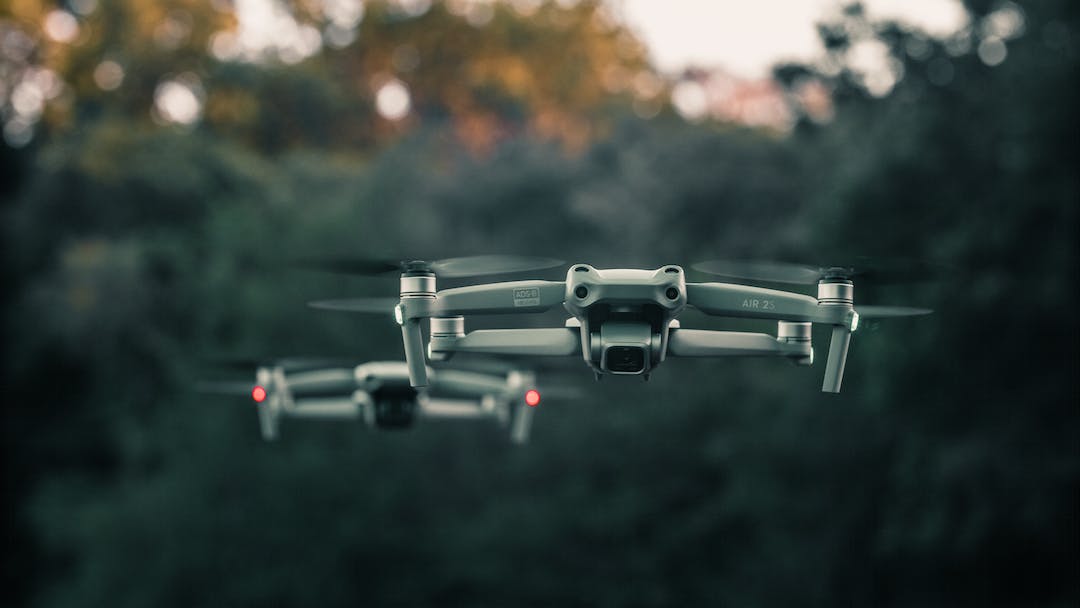Drone Surveillance and the Fourth Amendment: A New Case
In a recent decision, the Michigan Court of Appeals held that persons have a reasonable expectation of privacy in their property against drone surveillance conducted without a warrant or pursuant to a recognized exception to the warrant requirement. The case, Long Lake Township v Maxon, involved a civil zoning dispute in which the Township used a drone to take aerial images of the Maxon property without consent or any other specific legal authorization.
The Court of Appeals found that drone surveillance of private property is necessarily more intrusive and “qualitatively different” than the use of airplanes and helicopters permitted under California v Ciraolo and Florida v Riley. The Court noted that drones can fly at lower altitudes and hover in place, allowing them to collect more detailed images and information about private property.
The Court also found that the use of low-altitude unmanned drones to conduct targeted surveillance of private property is more like the use of thermal imaging devices found to be a “search” in Kyllo v United States. In Kyllo, the Supreme Court held that the government’s use of a thermal imaging device to monitor the radiation of heat from a home was a Fourth Amendment search. The Court reasoned that the government’s use of the thermal imaging device was a physical intrusion into the home’s curtilage, which is an area around the home that is considered to be part of the home itself.
The Court of Appeals in Long Lake Township v Maxon found that the Township’s use of a drone to take aerial images of the Maxon property without consent was a similar physical intrusion into the Maxon property. The Court also noted that the existing law in Michigan recognizes a reasonable expectation of privacy and other legal protections against drone misuse.
The decision in Long Lake Township v Maxon is significant because it is one of the first cases to address the Fourth Amendment implications of drone surveillance. The Court’s decision provides clear guidance to law enforcement and other government agencies that they cannot use drones to conduct surveillance of private property without a warrant or a recognized exception to the warrant requirement.
Implications for Law Enforcement
The decision in Long Lake Township v Maxon has important implications for law enforcement agencies that use drones for surveillance purposes. Law enforcement agencies should review their policies and procedures to ensure that they are consistent with the Fourth Amendment requirements set forth by the Court of Appeals.
In general, law enforcement agencies should obtain a warrant before using a drone to conduct surveillance of private property. However, there are a few limited exceptions to the warrant requirement, such as when the surveillance is conducted in response to an emergency or when it is conducted in a public area where there is a diminished expectation of privacy.
Law enforcement agencies should also be aware that the Fourth Amendment may apply to the use of drones even if the surveillance is not conducted directly by the agency itself. For example, if a law enforcement agency contracts with a private company to conduct drone surveillance on its behalf, the agency may still be required to comply with the Fourth Amendment.
Have you been charged with driving while high?
Want to fight that charge!
Call Our Office for a Free Case Evaluation
The decision in Long Lake Township v Maxon is a significant development in the law of drone surveillance. The Court’s decision provides clear guidance that the Fourth Amendment protects people from warrantless drone surveillance of their private property. Law enforcement agencies and other government agencies should review their policies and procedures to ensure that they are consistent with the Court’s decision.
The Court found the use of low-altitude unmanned
drones to conduct targeted surveillance of private property
to be more like the use of thermal imaging devices found
to be a “search” in Kyllo v United States when used to
monitor the radiation of heat from a home, and further
noted the existing recognition of a reasonable expectation
of privacy and other legal protections against drone misuse
as found in MCL 259.322(3) and MCL 259.320(1) (See Below)
Act 436 of 2016
259.322 Operation of unmanned aircraft system; harassment, violation of order, or invasion of privacy prohibited; definition; individual registered as sex offender.
Sec. 22.
Act 436 of 2016
259.320 Criminal liability; offense committed with aid of an unmanned aircraft system; exception.
Sec. 20.
Did You Know
Michigan State Police Legal Updates
MSP Legal Update No. 153 (01/2023)
- Search & Seizure: The smell of marihuana, standing alone, no longer constitutes probable cause to search for that substance
- Vehicle Code: Violation for impeding traffic requires evidence the accused’s conduct actually affected the normal flow of traffic.
Legal Update No. 153 (01/2023)
MSP Legal Update No. 150 (01/2022)
- Vehicle Code: Persons under the age of 21 may be prosecuted for operating a motor vehicle with the presence of marihuana in their system
- Criminal Law: Ethnic intimidation based on gender includes harassing or intimidating another person because of the actual or perceived gender of that person.
Legal Update No. 150 (01/2022)
Legal Update No. 148 (09/2021)
Legal Update No. 148 (09/2021)
Legal Update No. 147 (03/2021)
More Posts

US Dept of Justice letter regarding prosecution for marijuana
Attorney General Eric Holder's speech regarding dropping mandatory minimums for many drug crimes is already making an impact. Read the letter from the DOJ

Clio marihuana dispensary fighting Genesee County Prosecutor’s office in court
CLIO (WJRT) - (04/25/16) - A Mid-Michigan marihuana dispensary is fighting the Genesee County Prosecutor's office in court after FANG shut them down. The owner of the Clio dispensary says warrants weren't valid and he wants his business back open. Attorneys...

New Roadside Drug Test
What is the law? The Michigan legislature has passed into law a one-year pilot program set up in five counties that allows for Michigan State Police to perform roadside drug tests. The way this will work is if a driver gets pulled over for a traffic offense, in...

Why Are Michigan Prosecutors Reassessing Their Cases Against Medical Marijuana Patients?
Trying to understand why prosecutors in St. Clair County, Michigan, suddenly decided to drop their case against Ginnifer Hency, a medical marijuana patient and caregiver, and return the property that police seized from her home, I obtained several court documents from...

Attorney: Crime labs ‘falsified’ marijuana reports
A Southfield lawyer alleges the Michigan State Police crime labs have “falsified lab reports on marijuana statewide” and he’s asking a judge to dismisses charges lodged against a client. Michael Komorn, who also represents defendants in Livingston County, said...

Clio marihuana dispensary fighting Genesee County Prosecutor’s office in court
CLIO (WJRT) - (04/25/16) - A Mid-Michigan marihuana dispensary is fighting the Genesee County Prosecutor's office in court after FANG shut them down. The owner of the Clio dispensary says warrants weren't valid and he wants his business back open. Attorneys...

Medical marijuana patients reunited with son after lengthy court battles, unfounded drug charges
SPRING LAKE, Mich. -- After 18 months, a Spring Lake family's son is out of foster care and reunited with his parents. Yet the fight to be together, through court battles and serious drug charges despite being card-carrying medical marijuana patients, still haunts...

Komorn Law Secures Release Of Lorincz Child From CPS in Marijuana Custody Case
“This is one of those cases in an attorney’s career that is not easily forgotten, and is a reminder to me of the reason I became an attorney.” – Michael Komorn, attorney from Komorn Law and recipient of the Michigan Bar Association Right to Counsel Award for 2015....

Komorn AVVO Reviews
Research no further, call Komorn. 5.0 stars Posted by a client December 31, 2015 Hired attorney After an incident involving my medical marihuana grow, I found myself being charged with 2 manufacturing felonies. Upon a recommendation from an associate, I retained...

Criminal Defense Attorney of Michigan Award Committee
The Criminal Defense Attorney of Michigan’s Award Committee has selected Michael J. Komorn as the recipient of their Right to Counsel Award. This award recognizes the amazing contributions of a group or individual in the form of legal representation or other...











